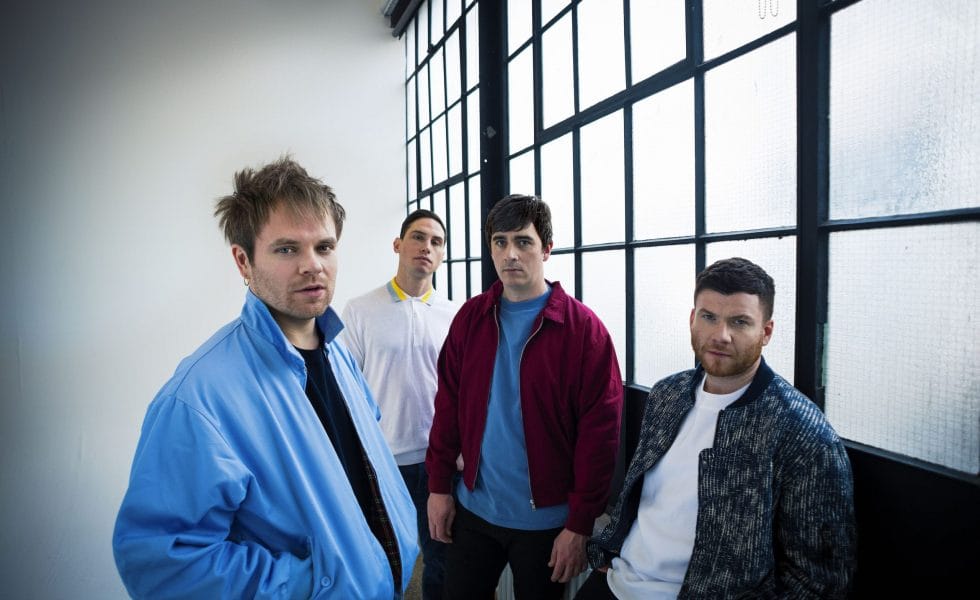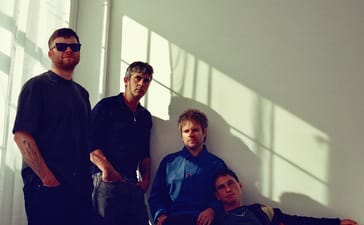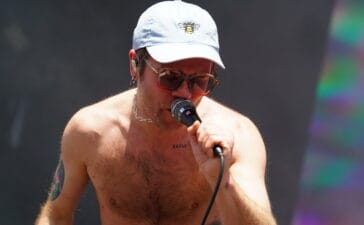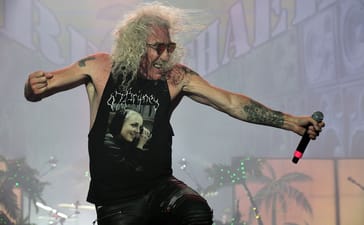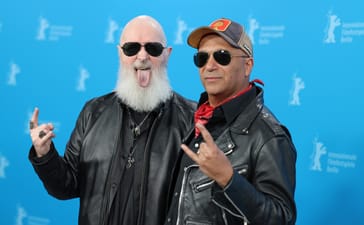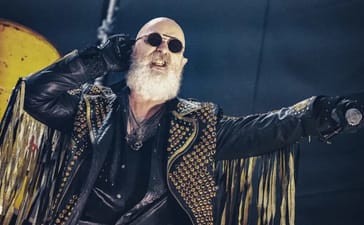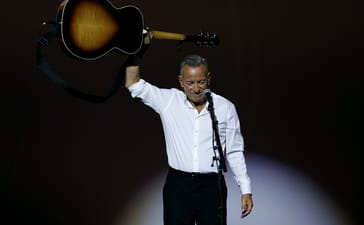Revered English rockers Enter Shikari have always been a voice of truth for the generation that grew up listening to them. Speaking on politics, broken systems and villainous corporations, frontman Rou Reynolds represents a voice intelligent enough to articulate an anti-authority sentiment in a meaningful and brave way. Little did the band know in writing their sixth studio album Nothing Is True & Everything Is Possible that it would become a beacon of light in the absolute clusterfuck that is the COVID-19 lockdown, as we see our leaders internationally grapple with the complexities of being forced to incite change to fight against the pandemic in a world so set in its ways. Chanel Issa caught up with Rou to discuss the new record.
So it’s probably a question you’ve been asked a million and one times by now, but how are you going with this lockdown?
I’m all right. It’s very solitary. I’m just at home with my cat, but I’m sort of used to, as a musician, as a producer, I’m used to doing a lot of stuff just in my studio at home. So, I’m sort of lucky in a way that I’m prepared for a very solitary life. But I’m certainly missing my family and friends and stuff and it’s very odd even like, you’re doing all the catch ups on, on Zoom with people or whatever else. It’s nice, but obviously it doesn’t sort of fully satisfy need to socialise with the people closest in your life. Also, I’m lucky that we’ve got this album, so I’m busy. I’m really busy, so I’m not suffering from the boredom, which seems to be one of the main complaints for a lot of people on lockdown. But yeah, I have my health, my loved ones have their health, so I absolutely can’t complain really.
Speaking of the new record, it’s fantastic. I’d love to hear about some standout moments you had from that recording process.
I can remember at one of the studios in Worcestershire in the UK, it was about day five and we’d already recorded loads of drums in this… It was like a converted chapel. So this was a seriously old place and about halfway through one drum take, the engineer just started laughing and we were like, “What? What’s up?”
And he’s realized that, well, he said, “I’ve only just realized that we’ve set the drums up exactly above the crypt.” So he then proceeds to tell us that beneath the floor of the chapel, there’s four generations of families buried in this sealed crypt. And it was right underneath where Rob was playing. So he was like, you know Rob’s a hard hitting drummer. He’s pretty wild and just to think of his kick drum vibrating through the floor and into this crypt and shaking these bones. It’s like, Oh my God, we were going to awaken some demon or something. Yeah, that was pretty scary. Another one would be just the surreal nature of recording for a full orchestra. I wrote an orchestral piece and getting to go out to Prague and record it with the City of Prague Philharmonic Orchestra was just unbelievable. Standing on a podium, conducting like 70 musicians. It was incredibly scary, but yeah, amazing experience.
When you were going through that journey of exploring your older sounds, did you make any discoveries about what you really did or didn’t want this album to sound like?
Yeah, well we just wanted it to be sort of all encompassing. A few years ago I wrote a book, Dear Future Historians, which is all of my lyrics and then an accompanying essay for each song just explaining the meaning behind the lyrics, the inspirations for the song and everything. And that was the first time that as a band we’ve ever looked back, we’ve ever sort of accepted and explored the journey that we’ve made because we’re normally, we’re such a forward-facing, relentlessly progressive band. We’re always looking, what’s the next thing, what are we going to do next, how are we going to like broaden our sound and things like that.
“So as individuals, companies, the media, governments, it’s so hard to grasp real truth now. Everyone has their own ideologies, which they exaggerate for.”
So this was really interesting and it made me want to make an album that sort of had a little tip of the hat, a little knowing nod to each era of the band. It felt like the album that hopefully fans will, if they’re introducing our band to their friends who don’t know us, they’ll go, ‘this is where you start. This is the album.’ Because I think it does sort of cover all the bases.
Tell us about the inspiration behind the record name.
Nothing Is True & Everything Is Possible. It’s just basically two statements of what it feels like to be living at the moment. The album really is a reflection. It’s just holding a mirror up to society and hopefully offering some wider perspectives. So Nothing Is True, I think on all sorts of levels. So as individuals, companies, the media, governments, it’s so hard to grasp real truth now. Everyone has their own ideologies, which they exaggerate for. We’re very emotionally attached to our own ideologies now and it really creates sort of embittered, distrusting conversations, really. And then companies and the press all have their biases and they’re sort of increasing in their confidence of just brazenly using those biases and not caring about the actual facts and yeah, it’s just a very sort of disorientating time really.
Because it’s just hard to sort of grapple with truth. It’s very slippery at the moment. And then Everything Is Possible. It’s just a statement of what it feels like. The last five years we’ve had shock after shock. The things that have happened, especially within politics that we just thought never could happen. Everything from obviously Donald Trump becoming president to Brexit in the UK, the rise of nationalism throughout the world really. In the 1960’s we would have thought that would be a completely dead ideology that just wasn’t coming back and yet here we are.
Obviously now this pandemic. It feels like our sense of normality is just taking a beating. Every month something else happens and it’s just… Yeah, so again it’s just very disorientating. And so the album, I guess its main theme really is possibility. It looks at what’s possible as a positive force, as a motivating force, which is what we normally think of when we use the word possibility, but it also looks at the shocks, the sort of frightening nature of possibility as well. And we also use that theme within the music. So we’re asking ourselves what’s possible. And that’s why this album is such a leap into an even broader soundscape. We’re really pushing ourselves on this one.
It’s really crazy to think that this album is going to be that soundtrack of the year – a year that’s so uncertain for so many of your fans.
It’s kind of very apt. A lot of the lyrics have become even more dramatic and more like, well they feel sort of prescient, I suppose right now because a lot of the album is discussing threats to all of us. Most of the problems humanity faces affect us all, so it’s supranational in its scope and obviously the pandemic is exactly that as well. The pandemic doesn’t care about national borders. It goes where it likes and it affects everyone around the globe. And I feel like the album, that’s one of its central themes really. Again, the only thing we’re really speaking about or at least the perspective we’re approaching things from is unity.
And hopefully we’ll learn a lot of lessons from this pandemic because we’re lucky. This could have been so much worse. If this was an avian flu with a 60% death rate, which is completely possible, that would be a civilisation changing event. This pandemic has shown just how drastically unprepared we are. Australia has come out pretty well so far, it’s like, and New Zealand as well, but obviously America under Trump and the UK is really not looking good, our death toll is right up there with Italy now. So there’s lots of lessons to be learned from this and that hopefully, we’ll learn the lessons before the next one, which could be far, far worse.


